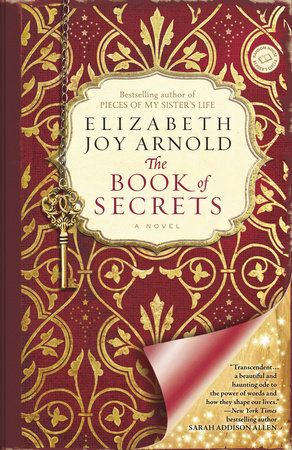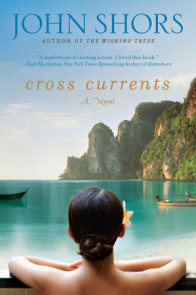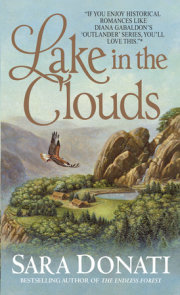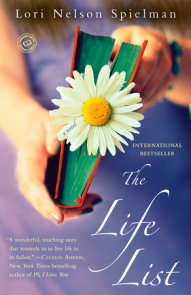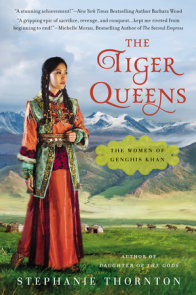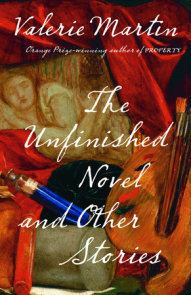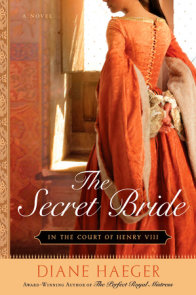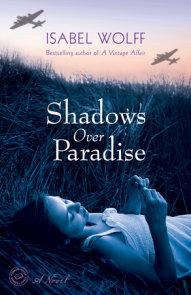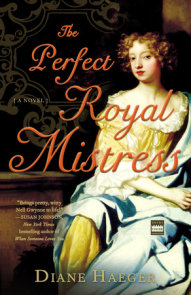READERS GUIDE
Elizabeth Arnold on Reading“What do you mean, you’re busy?” Kylie asked me. She’d come next door to play as she did every day, the two of us passing lazy, amiable afternoons filling pages of my Disney coloring book, and playing endless games of Crazy Eights or dress up.
I gave her an apologetic smile and tried to explain. “It’s just . . . there’s this book I’m reading.”
I felt awful when I saw her face. “All you ever want to do is read books,” she said, and then she spun away, toward home. She never came back. But what could I do? A giant caterpillar had just bitten through the stem of a giant peach, sending it rolling down a hill. Aunts Spiker and Sponge were squashed, the peach was still on the move with James inside, and most of me was still rolling through town with them when I answered the door. Kylie was no competition. And so it was that Roald Dahl cost me a friendship.
What is it that makes some children readers while others would rather do anything else? It was one of the many questions I was trying to explore in The Book of Secrets, and for Chloe at least it seems to have been a mix of life circumstances, personality, and something as simple as having found the right books, all of which were factors in making stories an essential part of my own life as well.
When people describe their childhoods as magical, I’d guess they’re usually referring to backyard ball games, a lack of responsibilities, or a belief in Santa. But when I think back on the magic of my own childhood, the first thing I think of are books. I don’t think I was a particularly happy child; I was lonely in spite of my friends, sure that I was different from them somehow, and I thought I should be more than I actually was, stronger, prettier, more heroic. But when I entered books, I became the person I wished I could be. I’m guessing it’s what all children wish for at times, and it’s a theme so many popular children’s books seem to have in common, from Huckleberry Finn to Harry Potter, the discovery of something fascinating that can transform you.
I think The Book of Secrets is the book I’ve always wanted to write. Partly because I got to revisit my childhood favorites while writing about them, and partly because it has the fairytale structure of those favorites: a lonely girl with a difficult childhood who discovers a new, enchanting, and disquieting world. But I also feel close to this book because as a child I was Chloe in a way, full of a kind of chaotic energy and longing for somewhere epic to direct it. So writing this novel, becoming Chloe and entering the world of the Sinclair children, I was reliving those days when I still believed finding that transforming new world was possible.
I was one of those kids who took books everywhere, along to dentist appointments to read while being fluoridated (I still do this), on car rides where I’d read for as long as the accompanying nausea let me, on walks down our street where I somehow managed to avoid bumping into trees.
We lived in a smallish town with a smallish library. The children’s section was in the basement, with blue fluorescent lights and only one high, rectangular window, and I recognized the crazy incongruity of it, that there was so much life hidden in such a completely lifeless room. My mother took my sister and me every Saturday, and I don’t remember ever seeing other children. Thinking back on it, I’m guessing Miss Sue, the librarian (yes, I remember her name), must have loved having me there, the kind of kid she was probably envisioning when she decided to take her job. She’d sometimes set books aside for me that she thought I’d like, and I can still see the expectant look on her face when she described them. (Do librarians ever do that sort of thing nowadays? It was such an amazing gift she gave me, especially since this was before the days of the Internet and “Customers who bought this item also bought” links. I actually could use someone like that now, somebody who understands my tastes and has the ability to magically spin through the now infinite rows of shelves to find what I don’t even realize I’m looking for.)
We were allowed to check out seven books at a time, one for each day till the next week’s trip, and I’d start reading on the drive home, as excited as if I was carrying armfuls of new toys. I remember standing in that small basement room worrying that I might finish every book in existence, and then what would I do? Until I was taken to a huge bookstore in Manhattan, seemingly endless shelves stacked so full they were straining, and the predicament became even more urgent. How was I possibly going to read them all?
I knew they couldn’t all be great books; of the hundreds of novels I read in those years, there were far fewer that resonated, and only about twenty books that changed me. But how could you possibly find the Joan Aiken or J. R. R. Tolkien needles in that impossibly huge haystack? I started getting stressed over what I might be missing, in the way I get stressed now when I don’t get a chance to see the news for a week, that sense that there might be something momentous out there that I need to know but have no idea about. It’s another thing that makes books so powerful for kids; they realize there’s so much for them still to learn, and getting to meet people very different from themselves, in circumstances very different from their own, gives them a sense of how huge the world is and how much they still don’t understand.
Of course children don’t just use books to learn about the world outside their own small circle. When they’re old enough to read carefully, they also learn about themselves. And that was one of the main themes in The Book of Secrets, the power of books to change not only the events in Chloe’s and the Sinclairs’ lives, but also the people they became.
I brought many of the books that changed me into this novel, most notably The Lion, the Witch and the Wardrobe, the book that really turned me, at eight, into a “reader,” just like it was the book that also first lured eight-year-old Chloe into reading. My aunt sent me a boxed set of Narnia books, and I remember looking at the covers, their muted foggy romance-novelish colors, and being unimpressed. But of course that all changed when I started reading.
I’d read quite a bit before that; I was an early reader, starting when a broken leg kept me from being able to do much else, and throughout childhood my parents made sure there were always books available. We moved to the UK when I was six, a country that at the time had only three TV channels, and we brought hardly any toys with us, so I spent the vast majority of my free time curled up in the living room with a book. I’d discovered the Little House series, L. Frank Baum, and Francis Hodgson Burnett, and I lost myself in a gorgeously illustrated volume of Heidi, and The Annotated Alice. But as much as I loved those books, there was something completely different about Narnia, and re-reading it as an adult last year, I felt exactly the same awe.
I think it’s more than just the story, it’s the way Lewis writes; he’s like a kind grandfather in the way he explains without being condescending. He talks directly to you and develops a relationship. I think he makes children feel respected. And somehow that gentle, everyday language and the very human characters and struggles make everything he writes feel more authentic, like he’s talking about this magical world with real, firsthand knowledge. You believe him.
I knew immediately that I’d use Narnia in my story to lure Chloe into reading, and pretty much everything she wrote about the experience was autobiographical. I devoured those books, a drug addiction; there was no sleep, barely time to eat or shower, and for the next three or four years (until adolescence changed my priorities), I stayed gripped by the addiction, looking for the next high.
I wasn’t all that hopeful when I asked Miss Sue whether she could find anything even remotely similar, but she introduced me to Edith Nesbit’s The Enchanted Castle, and then The House with a Clock in Its Walls, The Wolves of Willoughby Chase, and The Phantom Tollbooth. Even thinking about those books now makes me feel a jolt of electricity. I had a love affair with each of them—that heady, hungry, won’t-sleep-till-I-see–you-again kind of romance. It took me over, reading, in a way I haven’t experienced since, and I’d feel devastated and desperate when each book ended. I wrote scripts for some of my favorites, the way Chloe and the Sinclairs do for Narnia, acting them out with friends, with my sister, or even alone, all in an attempt to keep the story going and get even closer to it by experiencing it firsthand.
And then came A Wrinkle in Time, which still obsesses me so much that it appears in two of my novels. So many books seemed to enter my life at exactly the right time. I think it happens to all of us, but especially in childhood, and the book becomes part of us in a way. It might be the reason I can remember so much about the plots and characters from books I read before the age of ten, when I can hardly remember even the names of the books I’ve read over the past year.
I was nine years old when I first discovered L’Engle. The image that sticks with me most is of the town on Camazotz with every house the same size, shape, and color, each with children bouncing balls and jumping rope to the same rhythm, not allowed independent thought. It’s one of the main lessons from the book, the importance of uniqueness and creativity, and I’d been struggling with exactly that worry, of how different I felt from my friends. Maybe everybody goes through it at that age; it’s the age fitting in starts to become more important, but it really used to worry me. I had a sense that if people really knew who I was they’d completely alienate me. I was a daydreamer, shy and overly sensitive to other people’s issues and emotions (in retrospect, all qualities that fit with becoming a writer!) I’d been trying all year to pretend I was cooler, somebody I wasn’t, and it was when I got to know Meg, even quirkier than me, and realized I really, really liked her, that I stopped worrying so much that the way I saw the world was often different from the people around me.
And isn’t that one of the best things about books, that we can get inside people’s minds in a way we rarely do in life, and see that we aren’t alone? That everything we’ve stressed over or been embarrassed about, every unusual thought we have, isn’t quite as unusual as we’d worried it might be? It stretches the boundaries of what we judge as acceptable inside us. (As an aside, A Wrinkle in Time also made me realize how extremely awesome science could be, and made me certain that I wanted to grow up to be either a scientist or an author. I ended up doing both!)
Of all the books Chloe and the Sinclairs read, it’s their conflicting interpretations of the Bible that affect them most throughout the story. In my own life, since we weren’t an especially religious family, when my mother read the Bible to us it was much as she would’ve read any collection of bedtime stories, not trying to make us believe it was real, but still explaining the lessons in morality that the stories were trying to teach. The Bible fascinated me as much as any book I read throughout my childhood. Despite my upbringing, I wanted to believe it was real life magic written by a higher power, its creation over the centuries like a story behind a story. It was full of heroes and hardships, as many plot twists and as much magic as any epic. Like I was saying earlier about all the best books, the Bible’s stories tell us about the world and about ourselves, with all the same archetypes and plot motifs that are in the novels we’re reading now.
I liked Bible stories because I’ve always been driven to find order in the world. Life and the people around you don’t usually turn out the way you think they should, even though you know deep down that bad should be punished and good should be rewarded. The Bible is full of absolutes, and children like absolutes—for people and events to be internally consistent.
Maybe that’s why I’m driven to write, because I want that kind of control. I know it’s stretching metaphors too far, but when I’m first creating a story I feel like I imagine God might, inventing a new Earth and adding characters, giving them more or less free will, only reining them in when I absolutely have to, and they usually get what they deserve and come out stronger from the struggles. Maybe in the end that’s the real reason people are drawn to stories, because they make sense in a way life never does, and even when bad things happen to good people, by the end we usually understand that it’s led to something necessary.
Now I’m seeing proof of how innate the love of story is in my daughter’s pretend play, as imaginative as science fiction, where a lost baby puzzle piece finds his mommy puzzle piece and the two rejoice, animals fly kites to the moon, and a plastic teacup helps a rubber duck who’s gotten stuck inside an underwater Lego village. I’m doing whatever I can to make sure her love of story continues. In reference books on furthering your child’s development they mainly talk about the value of stories in enhancing vocabulary, but in my mind there are so many other subtler but more important benefits to a child’s future. I have no idea who I’d be now without hundreds of books behind me, but I’m pretty sure I’d be more two-dimensional, less empathetic, and much less informed about the world. So I sit with my daughter to read The Big Blue Truck, a picture book centered around friendship, and imagine introducing her to The Outsiders in ten years. I think about the books waiting to be written that she’ll introduce to me. And I imagine her face lighting up when she talks about her favorites, the way I think mine still does. I just can’t wait.
Questions and Topics for Discussion
1. Our childhoods can impact us in far-reaching ways, as seen in Nate’s and Chloe’s lives. Can you think of any childhood experiences or relationships that have greatly impacted you?
2. Nate uses books to communicate with Chloe and their son, Gabriel. What children’s books do you still refer to in times of sadness or trouble? Why? What do you get out of them? If you had to create a treasure hunt/secret code using books, which ones would you choose?
3. Nate and Chloe play together first as small children acting out Narnia books and then as teenagers daring each other to do things for badges. In both scenarios, they use their imaginations heavily. Do you think using one’s imagination can ever be dangerous, as Mr. Sinclair seemed to believe? What was different from their play acting as children and their pretending as adults?
4. Loyalty plays a big role in this story, whether in the romantic relationship between Nate and Chloe or the parental one between Mr. Sinclair and Grace. What are the consequences of betrayal? In this novel? In your own life?
5. Though they grew up in the same home, Grace, Cecilia, and Nate lead very different lives in part because of their very different personalities. How did the same experiences shape them? Compare their reactions to grief and crisis.
6. Religious fervor drives many of the disastrous things in this novel, but so does love. What do you think the author is trying to say about both things? What similarities do they bear to one another?
7. Forgiveness features heavily in each character’s life. Do you think these characters are better or weaker for forgiving their loved one’s failings? How do you think you would act in Nate’s shoes? Chloe’s? Cecilia’s? Grace’s?
8. How important a role does class play in this novel? If Chloe had been wealthier, how do you think the story would have changed? What about if Nate, Grace, and Cecilia had been from the wrong side of the tracks like Chloe?
9. The author touches on the effects of loneliness in several places in the novel. How does Chloe’s loneliness affect her throughout her life? How does she finally come to peace with it? Do you agree with the Thomas Wolfe quote Chloe cites that loneliness is an inevitable fact of human existence?
10. Do you think the secrets Nate kept from Chloe were justified? Why do you think he hid so much of his childhood from her, even after they were adults? How did those secrets impact their relationship? Are there secrets in your own past that you wouldn’t share with those closest to you?
11. Chloe muses that one might be able to judge a potential partner’s compatibility based on favorite books. Do you think the types of books you’re drawn to say something about your personality?
12. What impact do you think Mrs. Sinclair’s death had on the lives of the other characters? Do you think things would have turned out differently if she had lived?
13. Grace chooses her own happiness over Nate and Chloe’s. How do you think she justifies this? And is she able to hold on to her faith while doing this? What would you have done in the same situation?







